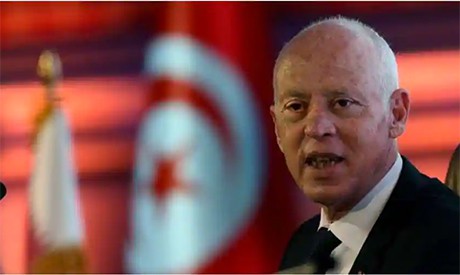Tunisian President Kais Saied has said he plans to restore diplomatic relations with Syria, more than a decade after they were broken off in protest of Damascus’s repression of political opponents.
“Nothing can justify the absence of a Tunisian ambassador in Damascus and an ambassador from Syria in Tunis,” Saied said during a sit-down with Tunisian foreign minister Nabil Ammar, according to a video released by the presidential office Friday night.
He went on to say that the “question of the regime in Syria concerns only the Syrians”, rejecting any interference in the affairs and “choices” of others.
Saied had mentioned his intention to “reinforce the diplomatic representation” of Tunisia in Syria back in February.
Tunisia expelled Syria’s ambassador in 2012 over the bloody repression of opponents of President Bashar al-Assad at the outset of the country’s civil war.
The diplomatic rupture, undertaken when former president Moncef Marzouki was still in office, was strongly criticised by the opposition at the time.
In 2015, Tunisia took a step toward re-establishing relations when it designated a consular representative to Assad’s regime to “follow” the situation of Tunisians in Syria.
Thousands took to the streets of Tunis in October to protest against a dramatic power grab by Saied that was later enshrined in a new constitution.
For some Tunisians, the moves sparked fears of a return to autocracy, but they were welcomed by others fed up with high inflation, unemployment and political corruption.

